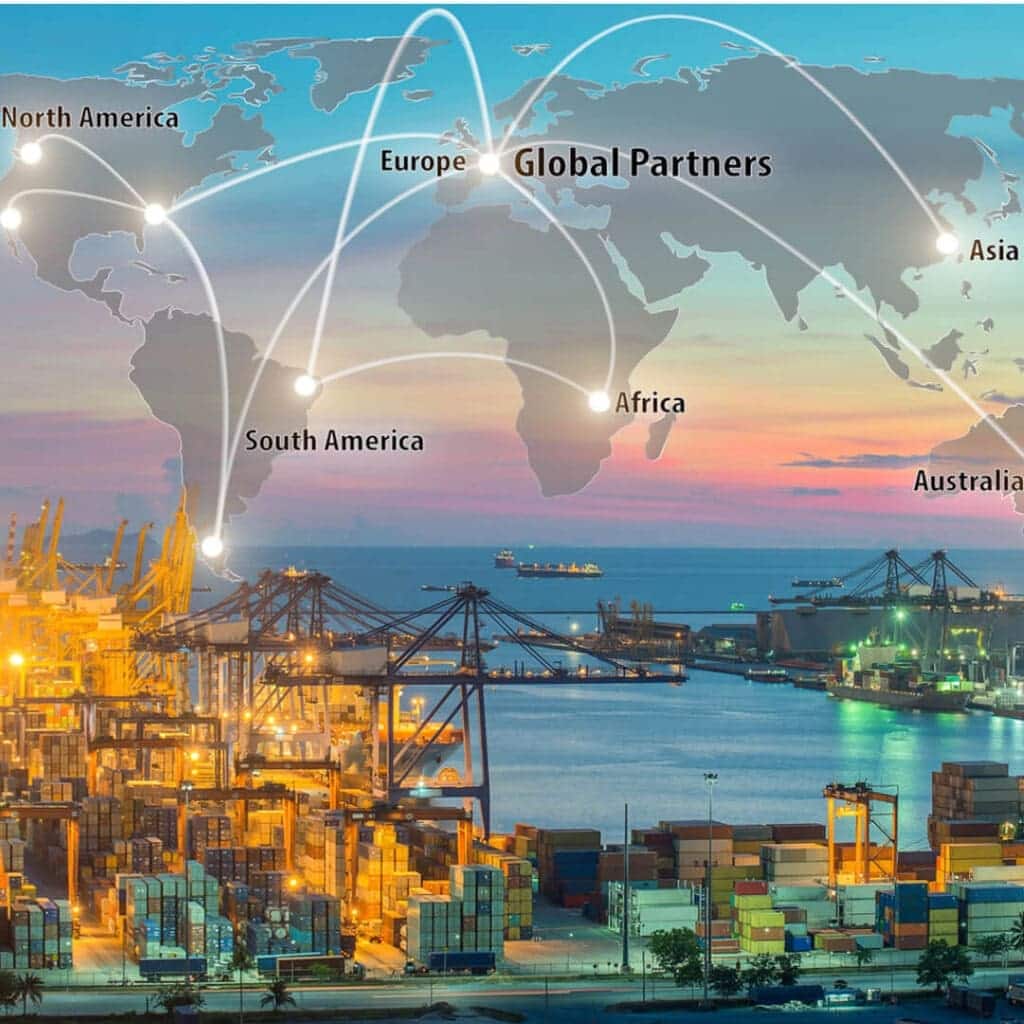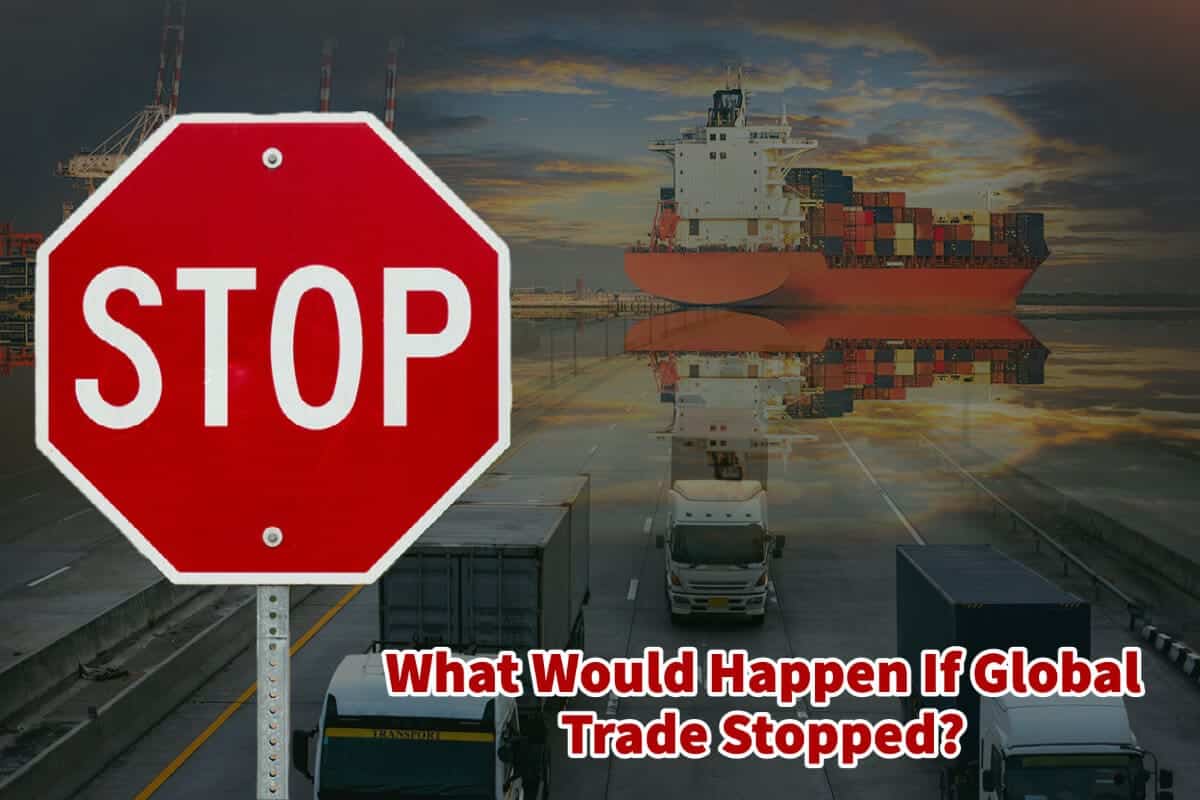Global trade has been the backbone of the global economy for centuries. It has allowed countries to specialize in producing goods and services where they have a comparative advantage and then trade them with other nations for goods and services they need.
However, what would happen if global trade stopped? Global Trade is an essential part of the world economy for many reasons. But if Global Trade stopped, many things could happen, including increased costs and poverty. Read on as we explore the possible consequences of a world without global trade.
Table of Contents
- Global Trade Is An Essential Part Of The Global Economy
- 10 Possible Consequences If Global Trade Stopped
- Frequently Asked Questions
- Related Content
Global Trade Is An Essential Part Of The Global Economy
Global trade is an essential part of the global economy for several reasons. Here are some reasons why global trade continues to be an essential part of the world economy.

Global Trade Allows Countries To Specialize Their Production
Global Trade allows countries to specialize in producing goods and services where they have a comparative advantage. This leads to increased efficiency and productivity, which benefits consumers and businesses alike.
Global Trade Allows Businesses To Access New Markets
Global trade allows businesses to access new markets and customers, which can help them grow and expand their operations. Global trade can lead to increased competition, which can help drive innovation and improve product quality.
Global Trade Lead To Economic Growth
Global trade can lead to economic growth, which can help reduce poverty and improve living standards worldwide. Countries can use global trade to improve their economies.
10 Possible Consequences If Global Trade Stopped
If global trade stopped, the consequences could be severe for the world economy. Because so much of the world has depended upon global trade for hundreds of years, global trade has long been an essential aspect of the global economy.
Here are ten possible things that could happen if all global trade would suddenly stops:
Fewer Products To Purchase
Without global trade, many products we take for granted would become unavailable. This is because many products are produced in other countries and are imported to our own.

A world without global trade would make fewer products available to purchase. This would limit consumers’ purchasing power everywhere and hurt both the global and local economies.
Higher Prices
Without global trade, prices would likely increase. This is because many products are produced more efficiently and at lower costs in other countries, and eliminating competition would increase prices.

It would mean you have fewer choices, which will be much higher prices and could be subpar.
Economic Recession

Global trade is essential for economic growth. If global trade were to stop, it could lead to a global economic recession. This would result in increased unemployment and decreased economic activity throughout the world.
Loss Of Jobs
Global trade creates jobs. It helps create jobs even for those not in the global supply chain.

Without global trade, many jobs would be lost, particularly in industries that rely on exports.
Decreased Standard Of Living
Global trade allows for increased efficiency, which leads to lower prices and an increased standard of living. Without global trade, the standard of living would likely decrease as prices rise and fewer products become available.

It would mean that things we take for granted would suddenly become much more expensive, and so many of us would not have the conveniences we have today.
Nationalism And Protectionism
Without global trade, countries would likely become more nationalistic and protectionist. This would result in increased barriers to trade and decreased economic activity.

This nationalism and protectionism could also lead to less travel and tourism. Countries may feel they do not need their borders open as they no longer have critical trading partners.
Reduced International Cooperation

Global trade promotes international cooperation. International cooperation would likely decrease without global trade, increasing political tensions and potential conflicts.
Decreased Cultural Exchange
Global trade promotes cultural exchange. Without global trade, cultural exchange would likely decrease, leading to increased isolationism and decreased understanding between nations.

This would also result in less tourism, educational exchanges, and people living and working overseas. People would not need to learn about other countries, cultures, and places.
Increased Poverty
Global trade helps to reduce poverty. Without global trade, poverty levels would likely increase, particularly in developing countries that rely on exports for their economic activity.

This can also lead to more world conflicts as those suffering may want to try to get into other countries and places. If people see no hope for their future, they may try to go places they are not wanted.
Environmental Degradation
Global trade can lead to environmental degradation if not appropriately managed. However, countries may be less willing to cooperate on environmental issues without global trade, leading to increased pollution and environmental degradation.

Global trade is essential for the global economy. It promotes efficiency, economic growth, and an increased standard of living.
If global trade were to stop, the consequences could be severe, including higher prices, economic recession, loss of jobs, a decreased standard of living, nationalism, protectionism, reduced international cooperation, decreased cultural exchange, increased poverty, and environmental degradation.
Therefore, governments and businesses must work together to promote policies that facilitate global trade and ensure that it is managed sustainably and responsibly. Doing so can build a more prosperous and inclusive world for everyone.
If you are interested in seeing how Mondoro can help you with your sourcing – we would love to talk to you about how we can help you and be part of your global supply chain.
Find out more about how Mondoro can help you create, develop, and manufacture excellent home decor and furniture products – don’t hesitate to contact me, Anita. Check out my email by clicking here or become a part of our community and join our newsletter by clicking here.
Mondoro gives out a FREE Lookbook to anyone interested. You can receive a copy of our latest Lookbook by clicking here.
Listen to our Podcast called Global Trade Gal. You can find it on all major podcast platforms. Try out to listen to one of our podcasts by clicking here.
Subscribe to our Mondoro Company Limited YouTube Channel with great videos and information by clicking here.
Frequently Asked Questions
What is global trade, and why is it important for the world economy?
Global trade refers to the exchange of goods and services between countries. It is crucial for the world economy because it allows nations to specialize in producing what they do best and trade for what they need, fostering economic growth and efficiency.
What would happen if global trade suddenly stopped?
If global trade were to cease abruptly, it would disrupt the intricate web of international supply chains, leading to widespread economic challenges. Nations would struggle to access essential goods and services, causing economic downturns and potential social unrest.
How would the cessation of global trade impact prices and availability of goods?
Without global trade, many nations would face shortages of various products, leading to increased prices for goods and services. Limited availability and higher costs could contribute to inflation and reduced living standards for many people.
How might the halt in global trade affect job markets worldwide?
The cessation of global trade would result in the loss of jobs across various industries, particularly those heavily reliant on international markets. Industries such as manufacturing, shipping, and logistics would be severely impacted, leading to increased unemployment.
What consequences could we expect for developing nations if global trade were to stop?
Developing nations heavily depend on global trade for economic growth. The sudden stop of international trade would hinder their development, potentially trapping them in cycles of poverty with limited access to markets and resources.
How would the lack of global trade impact technological innovation and progress?
Global trade fosters the exchange of ideas and technologies between nations. A halt in global trade could slow down technological innovation, as countries would lose the incentive to invest in research and development without the prospect of global market access.
What geopolitical implications might arise if global trade were to cease?
The absence of global trade could strain international relations and lead to geopolitical tensions. Countries may resort to protectionist policies, increasing the likelihood of trade wars and diplomatic conflicts as they vie for limited resources and markets.
How would the environment be affected if global trade stopped?
Global trade has both positive and negative environmental impacts. While it contributes to emissions through transportation, it also encourages environmental regulations and sustainable practices. The cessation of global trade may disrupt this balance, affecting global efforts to address climate change.
Could a world without global trade lead to increased self-sufficiency?
While some countries may strive for self-sufficiency in the absence of global trade, achieving it entirely is challenging. The interdependence of nations in the modern world makes complete self-sufficiency unrealistic, potentially leading to isolation and economic stagnation.
Is there a way to mitigate the negative consequences of a halt in global trade?
Mitigating the negative consequences of a halt in global trade would require international cooperation and the development of resilient, diversified economies. Implementing policies that promote local industries, fair trade practices, and sustainable development could help cushion the impact of reduced global trade.
Related Content
What Are The Major Benefits Of Strategic Sourcing?
Never underestimate the proper use of the strategic sourcing process in your supply chain. Strategic sourcing is a significant benefit to all stakeholders within the supply chain. Strategic sourcing forces all stakeholders to examine the supply chain strategy in detail. Strategic sourcing helps to eliminate any potential risks or problems.
You can discover more by reading What Are The Major Benefits Of Strategic Sourcing? by clicking here.
Seven-Step Strategic Sourcing Process Explained
A seven-step strategic sourcing strategy process will help companies succeed when procuring a product or a commodity. If companies take the time to go through each of the seven steps, this will help them to ensure they are successful with their sourcing needs.
You can learn more by reading our blog Seven-Step Strategic Sourcing Process Explained by clicking here.
Product Sourcing and Strategic Sourcing Explained
Product sourcing is when you source or look to find a supplier for a product you need. Strategic sourcing is strategically sourcing products. Strategic sourcing is not the lowest purchase price but the lowest overall cost. Product and strategic sourcing are very similar, but strategic sourcing is sourcing with a plan.
You can learn more by reading Product Sourcing and Strategic Sourcing Explained by clicking here.

